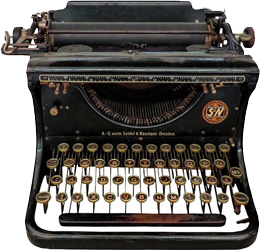March 28 – I decided early on to concentrate on panels dealing with the craft of writing, so Ways to Publish, seemed like something I should attend. The panelists were R.P. Dahlke (moderator), Anne Louise Bannon, Cathy Ace, Anne Barton, Robert Downs, and Russell Hill (who mentioned he was approaching his 84th birthday). The questions focused on the panelists’ experiences with traditional, small press, and self-publishing. I’ve listed highlights and suggestions provided by each panel member, but any errors or inconsistencies are due entirely to faulty notetaking and/or memory on my part.
Anne B
- With traditional publishers, you don’t have a lot of say in what happens
- Likes being paid right away
- Uses a book distributor
- Authors need to realize how much marketing work is involved in getting their book out
Russell
- Reminded everyone that James Lee Burke had 111 rejections before his 112th submission was nominated for a Pulitzer
- Stephen King had 34 rejections before being published
- Came across an agent who asked if his book was a literary novel, Russell said no and the agent said he would look at it, Pleasure Boat Studio (NYC) published his bestseller with movie rights optioned
- Ballantine treated him nicely but he was just another person, when he went to a smaller house people talked to and emailed him plus he had much more to do with how the book looked and felt
- He doesn’t worry about the money he makes but enjoys that someone has crawled inside his head for a bit
- Wrote for 25-30 years before being published at age 50
- Writes because he writes
- Publishes his work two or three times a week on a WordPress site
- Blogging is time-intensive but is an excellent way to get your name out there
- Does not receive royalties
Robert
- He approached the first two presses, the third press approached him
- Fourth press was small, either on MWA- or ITW-approved lists (Mystery Writers of America or International Thriller Writers)
- Publishing is another mountain in the journey
- Marketing and promotion are so important
Cathy
- People in the publishing industry are good people who want to publish books but they aren’t good at running a business or marketing books
- Watch contract terms
- Went independent with her last book and she’s still not sure she made the right decision
- Asks herself what will she gain by going back to a traditional publisher
- If starting over again, she would still seek traditional route, given where she is now after twelve books traditionally published, she might go the indie route
- By publishing yourself, when you sell a book the money will be in your bank account next week, not 17 months from now
- Realize the work is going to fall on your shoulders and any preparatory work you have to do will never be work wasted
- You are your best advocate
- If your book is printed by Amazon it will be invisible to bookstores, selling 80 percent through Amazon and 20 percent through IngramSpark
- Does not use a distributor for bookstores, has to go through IngramSpark for certain types of publications
- Has chosen the “no returns” policy – bookstores will not order a quantity, but will order if “ordered”
- Know who your readers and potential customers are and work out how to reach those people more efficiently, you cannot reach everybody
Anne Louise
- She once heard “you can make a living with a thousand true fans,” but she’s not so sure
- Marketing is always a work-in-progress
- Market books doing what you like to do – conferences, social media, offer free books to readers, get books into book bags, swag – whatever you like to do
The authors agreed they have more control over the final product if self-publishing or with small-press publishers. They also believe a good editor is critical to the creative process.
